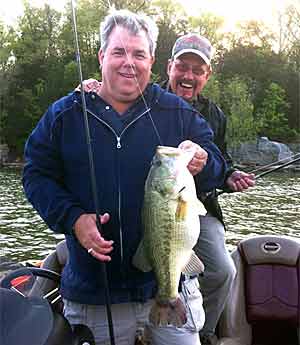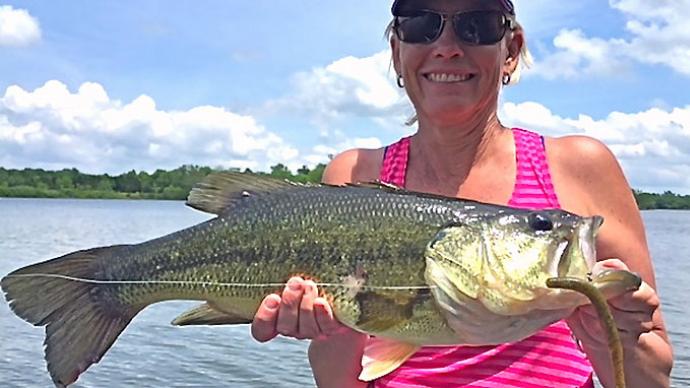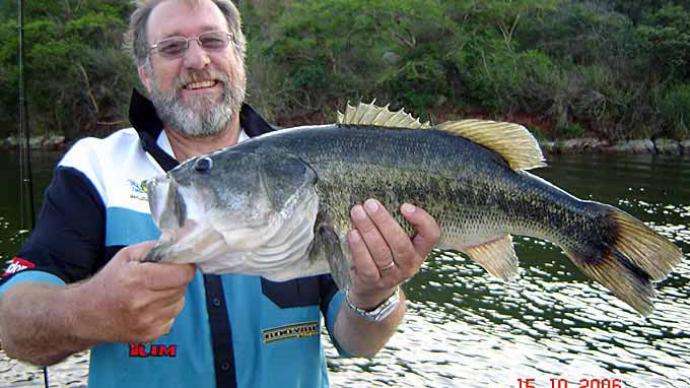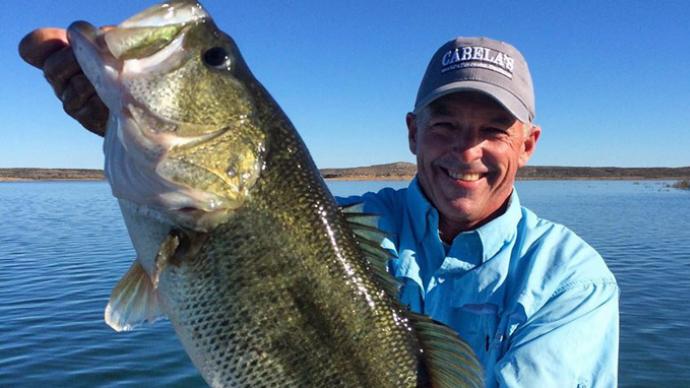
Each year anglers pour over 60 billion dollars into our nation's economy. Avid anglers are on the lakes every day and are tempted by everything from a new fishing line that is guaranteed to catch more fish to lures that are so effective that they have been banned from tournament use.
One of the significant areas where anglers spend their money is hiring fishing guides, who will take them on that trip of a lifetime. Although excellent fishing guides are abundant on our lakes, it does not take long to figure out that not all guides are created equally. Sometimes an angler may find out that being stuck in a boat with someone for several hours can be very trying.
Picking the right guide is an art and takes time, research, and even a little work. The first rule to consider is that a guide cannot guarantee that you will catch fish. They can take you to places that should hold fish, but sometimes they are defeated by conditions beyond their control. A good fishing guide should be able to put their customers "on the fish" in about 70 percent of the trips they take. But you should never hire a guide on the sole basis of catching fish.
The first thing you should ask yourself before picking the guide is, what do you want from the guide? Are you looking for someone to teach you fishing techniques and explain why you are fishing a particular pattern, or are you expecting to catch a lot of bass? Of course, you can do both with the right guide on a good day. But it is important to remember that these are often two different goals, and on some days, you will only be able to accomplish one. The most important aspect is lake education for future trips, so even if you don't "load the boat," you will have accomplished an important goal.
After deciding what you expect from a guide, the problem of finding that perfect guide begins. Initially, you should check with your friends and see if they have had any experience with anyone who guides on the lake you are interested in fishing. If you cannot find anyone, consider contacting a local bass fishing club and see if one of their members might have a suggestion.
The next logical step would be to check the internet. There are many fishing-related forums, such as the ones on BassResource.com, where anglers can post questions to other anglers and read the conversations concerning guides. Try to get the names of two to three guides you can contact and interview about the trip you plan. Any guide who is hesitant to discuss the details of the trip you are interested in should be immediately marked off the list as unacceptable.
The next thing to check is to see if the guide you are interested in has a website. Remember that although the guide usually decides what information is included on their web pages, a clean, well-designed website is sometimes a hint that the guide is serious about their business and will treat a customer right. Also, you usually get the opportunity to see the type of boat the guide uses and make a more informed decision if that guide has the proper equipment to suit your needs.
On the other hand, you should not hold it against a guide who does not have a website. It could mean he has all of the business he needs from current customers and doesn't have to advertise. Usually, with a guide with a full schedule, their reputation will be well established, and, you will hear their name several times on forums and from friends.
The next step is to contact the guide in person and inquire about fishing details with them. Of course, you should first ask about the price and deposit. Most guides charge between $250.00 and $350.00 per day and will require up to a $100 deposit to hold the date for you.
At first, this may seem like a lot, but after the guide pays for the boat, fuel, and gear, they are working at a cheap hourly rate. Make no mistake about it; guiding is hard work, and yes, guides do feel tremendous pressure to put you on the fish.
The deposit, as aggravating as it can be, is well within reason. The guide does not know you and has to have some assurance that you will not cancel at the last minute and leave him without a paying fishing partner for the day. After a guide becomes acquainted with the customer, it is typical for him or her not to require a deposit. One thing to remember is that fishing might be a passion for you, but for that guide, it is a living. If you book a trip, plan on being there or cancel early enough for the guide to book another trip.
The next thing you should tell the guide is your experience level as well as the level of experience of your partner or whoever might be going with you, such as a child, and what you expect from a trip - especially if you are an inexperienced angler and will need a lot of hands-on attention. Most guides are very patient and will go out of their way to help you. But on the other hand, some guides would instead work with more experienced anglers, and some won't take children.
You should also let the guide know if you are interested in learning more about any particular techniques you will be using or a pattern you will be fishing. A good guide can provide a wealth of information in an eight-hour trip if they have the knowledge. Unfortunately, some guides do not have the knowledge. They are the type of angler with several "honey holes" marked, and if the fish are not there, they are as lost as you might be.
Another question you'll want to ask the guide is if you'll be fishing with them or one of their associates. It is a common practice for a guide who is already booked to book a trip with you and then hire another guide who has yet to plan a trip to fish with you. You can rest assured that the guide you call will not be as careful about picking a guide as you would be.
I would also like to ask the guide what type of lures he expects you to use and what type of patterns he would like to find. A good guide will know from season to season, almost to the week, what lures should work, and what type of depth will hold the most fish.
Suppose the guide is reluctant to provide anything more rudimentary about specific lures. In that case, it might be because they aren't sure what you will need at that time, but most guides will be able to provide you with a fairly good list of lures to have on hand for the particular time of year you will be fishing with them.
A knowledgeable, established guide might not give you specific locations, but he will almost always give you some idea of what lures you should bring along for the trip and the depths you will be fishing in before you arrive.
After booking the trip and making arrangements to send a deposit, you need to make arrangements about the meeting location and time to meet. If you book the trip in advance, the guide will usually ask you to call closer to the trip for the final arrangements. Usually, the guide has a plan in mind and wants to arrive at a specific location at a designated time. Therefore, it is essential that you arrive on time and be ready to fish.
Also, even though you are paying for the guide, your responsibilities continue beyond there. It is important to remember that you are a guest in that guide's boat, and you should act accordingly. If you make a mess, plan on cleaning it up and if you break something, plan on paying to repair it. You will have a better time if everyone is working together.
A good guide's primary functions are to put you on fish or teach you more about a particular lake and assist in any way reasonable. He will usually cast a few times at each location to see if there are fish in the area, but a good guide is only there to catch some of the fish. They are there to help YOU catch fish.
A good guide will help you have a great day on the lake, and I would always appreciate your referral to friends and associates. Just to let you know, he is an angler and not a marketing specialist. By spreading the word about a good guide, you are also helping others search for that perfect day on the lake.
Good luck and tight lines.




